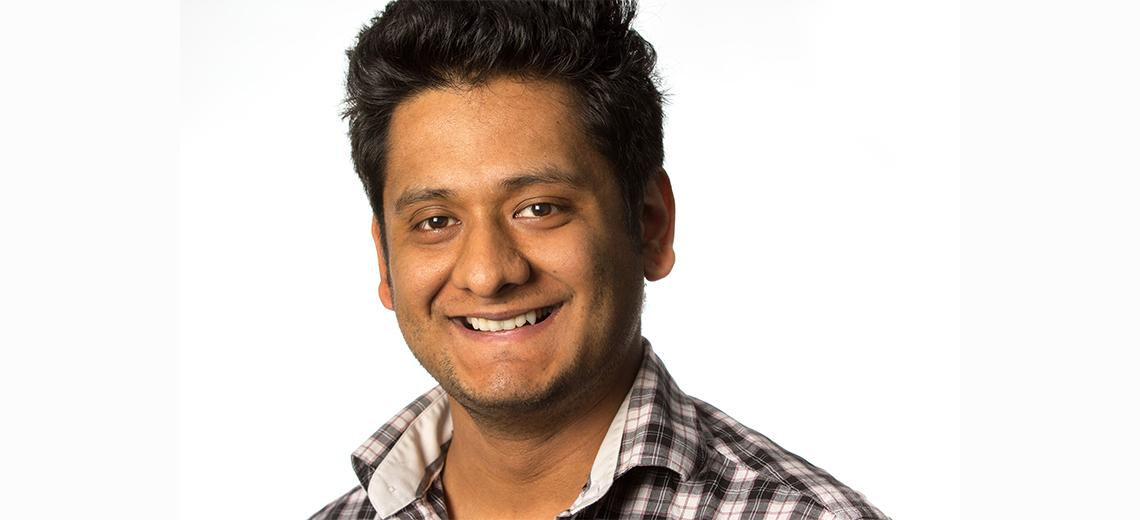
Roshis Krishna Shrestha recently completed his PhD within the ANU College of Business and Economics’ (CBE’s) Research School of Management. Shortly after graduating, Roshis started his new role as a Research Assistant Professor at Hong Kong Polytechnic University (HKPU).
In this interview, Roshis provides insights into his dissertation, talks about his new role, and reflects on the ups and downs he encountered while completing his PhD.
Q. Congratulations on completing your PhD! Can you give us an overview of the focus of your research, and some of the conclusions you drew from it?
My dissertation is entitled An Indigenous wisdom framework to sustainable collaborative Indigenous tourism development: The case of Nepal’s Newars and, as its name would suggest, draws on the traditional knowledge of Indigenous Newars to empower sustainable and collaborative tourism development. The thesis takes insights from the traditional and contemporary practices of Guthi, a socio-cultural cooperative unique to the Indigenous Newars of Nepal with a history spanning over 1700 years. The Guthi system, which continues to thrive in many Newari communities, empowers its members to collectively organise events of cultural, social, economic, and religious significance. The Indigenous Wisdom framework, inspired by Newars’ relational norms, values, and traditional knowledge systems, seeks cultural empowerment by preserving heritage, enhancing social cohesion, and promoting ecological sustainability. This framework presents a collaborative approach that deeply respects and embraces Indigenous perspectives and knowledge, fostering equitable and sustainable tourism development.
Q. One of the papers from your PhD recently won the 2023 Journal of Hospitality and Tourism Management’s (JHTM) Best PhD Award. What are the key practical contributions of this paper and how does it inform your future research directions?
The paper, separate from my thesis and titled 'A place where I belong' - The ambiguous role of the outsider-within dichotomy among Indigenous Gurung women tourism entrepreneurs in Nepal, offers valuable insights into the empowerment of Indigenous female Gurung tourism entrepreneurs, highlighting the crucial role of grassroots associations. By comparing the grassroots associations that performed really well and associations that were barely afloat, this research provided insights into how effective grassroots associations gave Indigenous women entrepreneurs who feel ‘outsider-within’, a safe space to empower their creative potential. Local government bodies or destination-management organisations can adopt the proposed strategy to empower the Indigenous women entrepreneurs in the peripheral region of developing countries, such as Nepal. This study fuelled my interest in grassroots mobilisation and performative justice in marginalised contexts.
Q. When did your interest in Sustainable Collaborative Indigenous Tourism Development begin to grow?
Before embarking on my academic journey, I gained over five years of managerial experience in various sectors in Nepal, including automotive and consumer-durables industries.
As an Indigenous Newar from Nepal, I have a longstanding connection with Guthi. From a young age, we are introduced to cultural practices such as the Machhindranath Jatra, a renowned cultural festival that has persevered for over 1700 years. Observing how deeply Guthi is ingrained in our community has always piqued my curiosity. I’ve found myself continually intrigued by the significance and enduring nature of this social cooperative among Indigenous Newars. My curiosity took an academic shape when I was reading some of the existing scholarly works on Guthi, and then I realised that this was not how I saw Guthi, and this was not what it meant to me. This discrepancy sparked my desire to delve deeper into this area and provide a more authentic representation of Guthi, one that resonates with the lived experiences of Indigenous Newars like myself.
Q. You have accepted a new appointment as Research Assistant Professor at HKPU. How do you feel about starting in this role, and what do you hope to achieve?
I am thrilled to start my new role. HKPU’s School of Hospitality and Tourism Management is home to 75 distinguished faculty members that I look forward to learning from and collaborating with. My research interests extend to sustainable tourism, culture and heritage tourism, and rural tourism, as applied to my native country of Nepal, and informed by ethnographic methods and grounded theory.
My goal is to develop holistically as an academic, excelling in securing research grants, producing high-quality research, and delivering impactful teaching. I am eager to foster collaborations within and beyond the university, and believe that these partnerships can drive innovative research to address pressing challenges in our field. This opportunity to contribute to and grow in this vibrant academic environment is truly exciting.
Q. What were some of challenges you faced during your PhD, and how did you overcome them? What was a highlight?
The biggest challenges I faced during my PhD were flow-on effects of the COVID-19 pandemic. In particular, travel restrictions delayed my fieldwork by over six months and meant I had to develop virtual relationships with community elders and key informants prior to going out into the field. Also, being in isolation within a few weeks of arriving in the country all by myself tested my motivation and productivity. To cope with this, I took regular breaks, started meditation, and started exercising. Also, my supervisor, Dr L’Espoir Decosta, provided invaluable support and motivation during this difficult time.
Q. What will you miss the most about life at ANU?
At ANU, I met some amazing people who enriched my life and helped me focus on what really matters. In addition to these wonderful people, I will miss the beautiful campus, especially morning coffees at Atticus with friends and the tranquil walks across the campus during the late afternoon or evening. The serene parks of Canberra, which provided a peaceful escape, will always hold a special place in my heart. Lastly, the philosophical discussions I had with my supervisor were invaluable and will be deeply missed. These experiences have left an indelible mark on my professional journey.
The College is always keen to explore research collaborations with the public and private sector and to reconnect with alumni. Please get in touch if you would like to know more about partnering with us.
